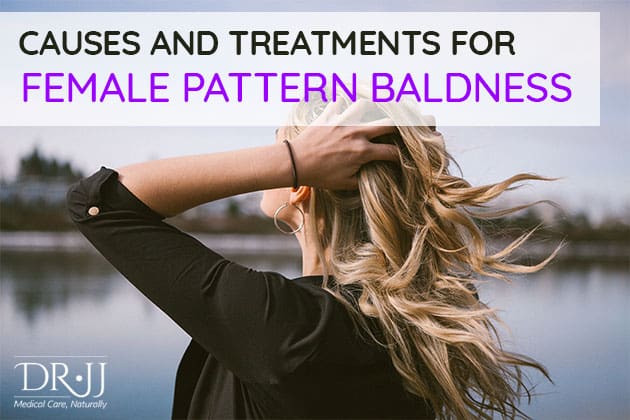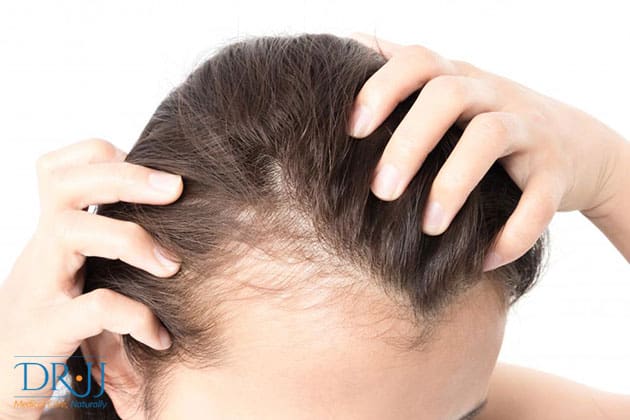
On average, we have about a hundred thousand hairs on our head, each of which grows approximately 6 inches a year.
Of course, this amount can vary.
Some people have a lot more hair, while others have a lot less.
If you’re experiencing noticeable hair loss or thinning, the good news is it can often be resolved with naturopathic medicine.
Last week, we talked about male pattern baldness.
While male pattern baldness is a far more common issue, women face issues with hair loss as well.
Like with men, female hair loss can be linked with nutritional deficiencies.
With early intervention, nutrition and naturopathic medicine can be effective treatments for hair loss and hair thinning.
My name is Dr. JJ, a Toronto naturopath, and today we’re going to dive deep into the topic of female hair loss and how naturopathy can help.
Read on to find out more about naturopathic solutions for hair loss in women.
The Three Cycles Of Hair Growth
Hair growth occurs in three distinct stages, or cycles.
In its first cycle, your hair grows relatively slowly.
And believe it or not, this slow growth stage accounts for approximately 90% of your hair’s lifecycle.
So, say you wanted to grow your hair a foot or two, but you’re only able to achieve approximately 6 inches of growth.
That means it would take 3 to 4 years to accomplish your goal.
Talk about a long term project.
After your hair has finished growing, the next stage is the transition phase.
During this phase, the hair follicle shrinks for the next 2 to 3 weeks.
Finally, the last stage in the cycle, which occurs just because the hair is shed, is the resting phase.
This phase lasts between 2 to 4 months.
Causes Of Female Hair Loss
Now that you’ve read a bit about the lifecycle of your hair, let’s turn to discuss the causes of female hair loss.
They include:
- Over styling, especially heat treatments and bleaching
- A variety of medical conditions and diseases, e.g. autoimmune diseases
- Rapid weight gain or loss
- Thyroid problems or hormonal imbalances
- Life changes, such as pregnancy and menopause
- Stress and trauma
- Your genetic makeup
- Your diet and lifestyle
- Nutrient deficiencies, e.g. low iron anemia

How Much Hair Loss Is Normal?
Of course, not all hair loss is a cause of concern.
In fact, you naturally lose some of your hair everyday.
According to the American Academy of Dermatology Association, you can expect to shed approximately 50 to 100 strands of hair each day.
If you consider how many hair follicles are on you head, the 50 to 100 that represent normal daily loss do not make a significant dent.
However, if you notice that there is more hair falling out than normal, or if hair starts to fall out in clumps, come in to see me and we’ll work toward discovering the root cause.
The Savin Scale
The Savin scale is a tool doctors use to describe the stages of hair loss, from normal hair density to a fully bald crown.
This classification table was developed in 1996 specifically for documenting female pattern baldness, also known as androgenetic alopecia.
The Savin scale is used to track the speed and severity of hairline recession and hair thinning so that it can be better diagnosed and corrected.
Below you’ll find an image that demonstrates the different stages on the Savin scale.
Naturopathic Treatments For Female Hair Loss
Now that you know what normal hair loss should look like and you understand what the diagnostic tools are, let’s have a look at some of the treatments I have at my disposal which may help correct that hair loss.
1. Increase Your Biotin Intake
Biotin is a B vitamin that is best taken in conjunction with a B vitamin complex for fullest effect.
Biotin is an important ingredient in hair, skin and nail growth, because it helps create red blood cells which carry oxygen around the body.
When red blood cells function optimally, your scalp and follicles get better oxygen flow, which is known to improve thinning hair.
Biotin can be taken orally or injected via intravenous (IV) therapy.
2. Increase Your Iron Intake
Another way to help red blood cells do their job is by taking additional iron if you are deficient.
RELATED: Why Is Iron Deficiency So Common?
This can be done mostly through your diet but also through supplements.
Iron is an important factor in the makeup of hemoglobin, which is what carries oxygen around your body.
Before you go out and buy iron tablets, be sure to come in and see me for a consultation.
Iron can be damaging and toxic in high doses and can also interfere with the absorption of other nutrients.
So can certain pharmaceutical drugs, such as levothyroxine (used to treat hypothyroidism, and certain antibiotics (ciprofloxacin, norfloxain).
3. Increase Your Vitamin D Intake
In a 2021 study by Saini and Mysore, vitamin D deficiency was determined to be a key factor in the development of alopecia (hair loss).
This connection seems to especially prevalent for women.
In addition to hair loss, vitamin D deficiency may also contribute to osteoporosis, osteoarthritis, heart disease, and certain types of cancer.
This is why doctors often monitor your vitamin D levels when you have bloodwork done.
Vitamin D also helps with stress reduction and stress management, which can be a contributing factor of its own when it comes to hair loss.
Vitamin D is formed through direct skin contact with the sun, and as a result many of us don’t get enough because of our lifestyle.
Vitamin D is produced quicker at higher skin temperatures (> 25 degrees Celsius) versus cooler temperatures.
This is another reason why it’s very difficult for people who live above certain latitudes to get enough vitamin D naturally, including anybody who lives in Canada.
4. Supplement With L lysine
L lysine is an amino acid that assists the body in absorbing calcium and builds both tissue and muscle.
Calcium deficiency can contribute to hair loss; therefore, adding more L lysine into your diet can help combat female hair loss.
To get more L lysine in your diet, look at how much meat, eggs, beans and fish you’re consuming.
Because of its role as a builder, having a diet rich in L lysine strengthens growing hair follicles.
5. Supplement With Omega 3
Omega 3 and other fatty acids are essential in the hair growth process.
You can find omega 3 in a variety of food sources, including:
- Fish
- Flaxseed
- Walnuts
- Pumpkin seeds
- Dark, leafy greens, such as spinach or kale
RELATED: Superfoods For A Stronger Mind
This is just a short list.
Omega 3 fatty acids are commonly added to a wide range of other foods because they are recognized for their importance.
Since the human body can’t synthesize it by itself, we need to get it through our diet.
6. Increase Your Protein Intake
Keratin is a protein that makes up a large portion of your hair.
In my experience, patients that are protein deficient commonly experience hair thinning or hair loss.
Dietary protein deficiency often occurs in patients that are stressed, have poor digestion or malnutrition, have vegetarian diets low in protein, or take medications that reduce their nutrient absorption, e.g. proton pump inhibitors.
The solution is to address the cause, if possible.
From there, we’ll take a look at how to include more protein in your diet.
This might include taking protein supplements, or protein via IV therapy, depending on your situation.
Protein IVs accelerate the absorption of protein by your body and can reduce the rate of hair loss and thinning.
Questions? Ask Dr. JJ
Our hair reflects who we are and how we present ourselves to the world.
That’s one of the reasons why hair loss is such common complaint that I see in my practice.
Your lifestyle factors can either contribute to female hair loss or help prevent it.
At my clinic, I can help you explore which lifestyle factors could be contributing to hair loss.
If you are finding that your hair is thinning, there’s no need for panic.
Call now to book your appointment with me, Dr. JJ.
I have many tools in my arsenal, and together we’ll find the best one to restore your style.
Book your appointment with me, Dr. JJ, today to find out how naturopathic medicine can help to transform your hair.
If you have questions about naturopathic medicine, or you’d like to take your first step into the world of naturopathy, contact me, Dr. JJ, and let’s book an appointment.
Yours in health,
Dr. JJ Dugoua, Naturopathic Doctor
600 Sherbourne St, Suite 315,
Toronto, ON M4X 1W4
-https://goo.gl/maps/6VDXwiCihRpDRo5A9
Dr. JJ Dugoua is a naturopathic doctor in Toronto and has a PhD in Pharmaceutical Sciences. His clinic provides solutions for many health concerns and has a special focus on thyroid health issues.


